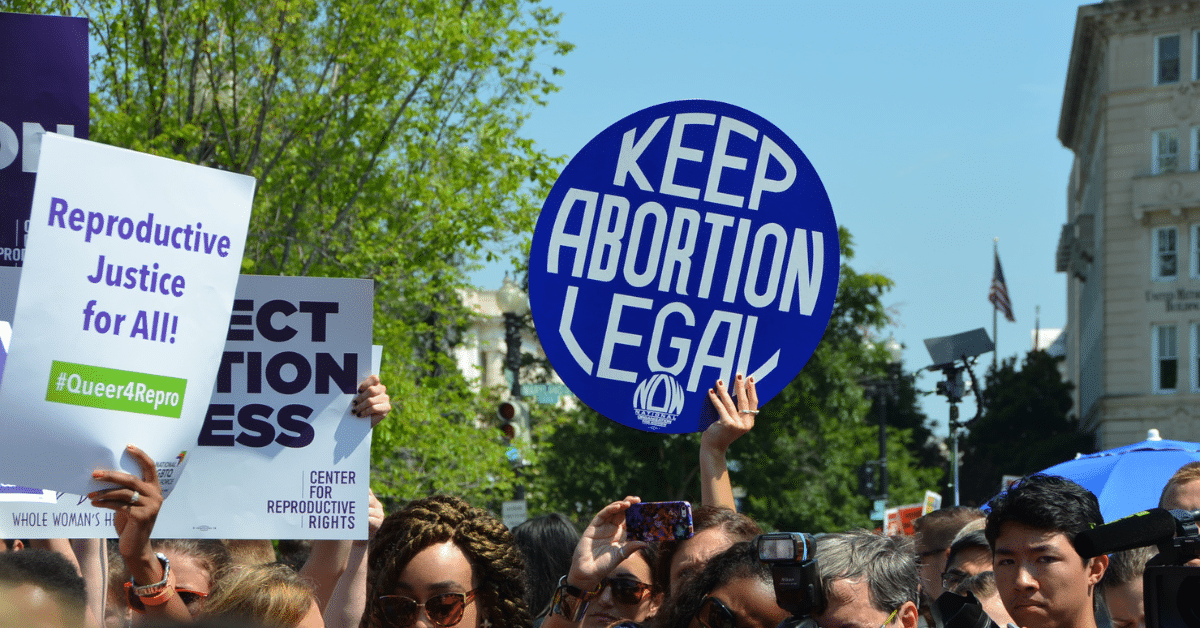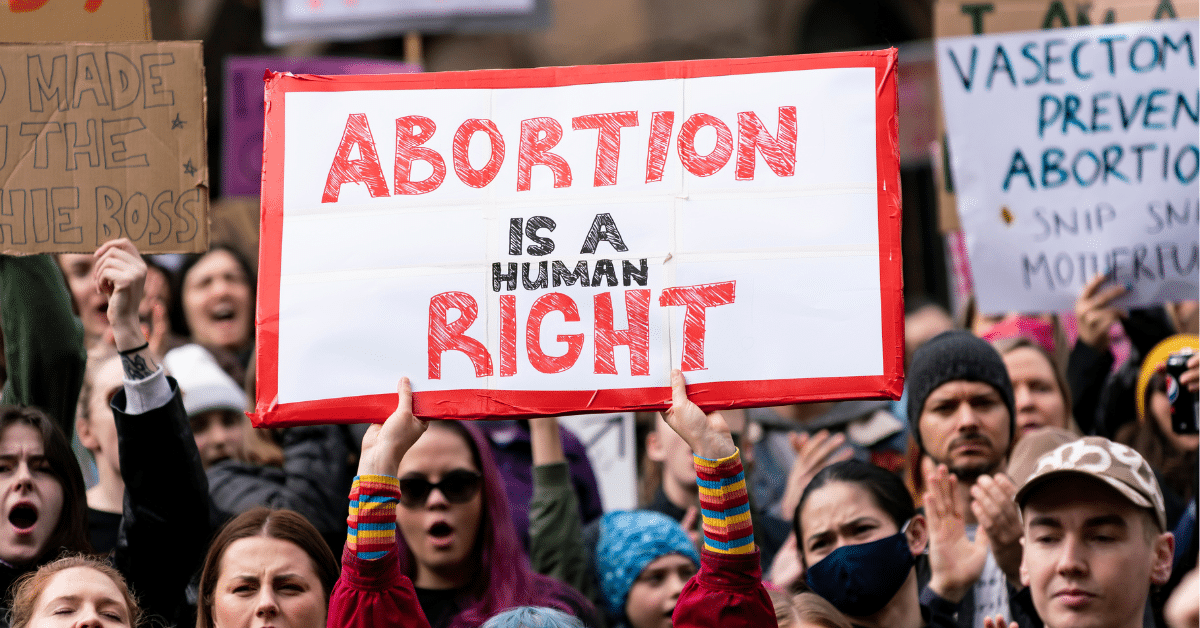The status of women’s rights to personal autonomy today

Image: Adam Fagen, Flickr
This year’s International Women’s Day was struck by France becoming the first country in the world to enshrine the right to abortion into their Constitution. “Liberty guarantees women the right to resort to abortion” now appears in the French supreme law.
This advancement for women’s rights to personal autonomy stems from a growing fear regarding the increasingly prevalent threats to women’s rights to terminate a pregnancy around the world. Over the past decade, the following countries have denied access to abortion;
In 2006, the National Assembly of Nicaragua passed a bill making abortion illegal in all circumstances.
In 2013, El Salvador’s Supreme Court denied access to abortion even in cases where the life of the women was highly at risk.
In 2020, Poland’s Constitutional Tribunal tightened the ban on abortion by ruling that abortions in cases of fetal impairment are unconstitutional.
In 2021, the ban on abortion in Honduras was enshrined into the Constitution; making it’s potential legalisation extremely difficult.
In 2022 the American Supreme Court overruled the landmark case Roe v Wade that made access to abortion a federal right. Following this decision, twenty-one states have restricted or banned the access to abortion.
A note on gendered language in this article
The word “women” is used in this article because it represents the majority of persons concerned by abortion. However, transgender men and non-binary people can also be impacted by abortion.
A note on gendered language in this article
The word “women” is used in this article because it represents the majority of persons concerned by abortion. However, transgender men and non-binary people can also be impacted by abortion.
These attacks on women’s rights are of high concern. The right to abortion is an inherent part of the right to personal autonomy. The latter refers to an individual’s freedom to make decisions about their own life, body, and personal affairs without interference from others, particularly from the government or other authorities. It encompasses the right to self-determination, privacy, bodily integrity, and the ability to choose one’s own beliefs, values, and lifestyle.
The universal protection of personal autonomy depicts its importance. It is protected by most national legislation and by charters such as the European Convention on Human Rights or the African Charter on Human Rights.
However, this right remains restricted for many women across the globe through the over-regulation or banning of medically assisted abortion. According to the American Center for Reproductive Rights (CRR), 21 countries have proscribed abortion and 40% of women worldwide live in an area where abortion is banned or overly limited. These women’s personal autonomy is diminished because they no longer have a choice regarding their body and their lifestyle. They have to, in theory, carry out their pregnancy and raise a child they may not necessarily wish to have.
In reality, the majority of these women don’t take the route the law wants them to take, which is carrying out the unwanted pregnancy. Of those who do decide to terminate the pregnancy, the majority resort to clandestine abortion. According to Amnesty International, 34 out of 1,000 women undergo an abortion when it is legal to do so and 37 out of 1,000 women undergo an abortion when it is illegal to do so. These statistics prove that banning abortion does not prevent it from happening. It simply prevents it from happening in safe conditions. Women who undergo a covert abortion are not medically supervised and don’t always have access to professionals. Additionally, the mental burden that accompanies the voluntary termination of a pregnancy is amplified because the women are deprived from proper support. The illegality of their act often leads to isolation and shame.
Image: Matt Hrkac, Flickr
The concern regarding clandestine abortions is far from trivial. More than 25 million unsafe abortions are still performed each year, making it the third leading cause of maternal death in the world.
Nonetheless, many groups continue to preach that it shouldn’t be legalised. The Vatican and the Bishops’ Conference of France reacted negatively to the French constitutionalisation of the right to abort by comparing it to a right to get rid of the life of a human. Other “ pro-life “ groups manifested their disapproval through social media. These movements exist universally and don’t shy away from voicing their opinions on abortion. For instance, the Irish Pro Life Campaign expressed its strong disapproval regarding the 2018 referendum allowing the Oireachtas to legislate for abortion.
Those with “pro-life” views present themselves as humanistic and morally correct. However, taking a “pro-life” stance means valuing a foetus over a living, conscious woman. The development of the foetus is favoured over the freedom of choice of the woman. Essentially, being “pro-life” is being anti-choice.
Anti-choice type movements and ideas have existed for thousands of years because patriarchy has existed for thousands of years. The belief that women should not be able to have a choice regarding themselves, or anything else for that matter, stems from the belief that men hold the power and that women must surrender to it.
Making abortion illegal or over-regulating abortion has the effect of telling a woman that she does not have a say in what will happen to her body and to her life in general, that her voice and opinion does not count and that she is not in control, even regarding her own body.
In contrast, safeguarding the right to medically terminate a pregnancy contributes to the general welfare of women. It prevents women from feeling that their right to freedom and personal autonomy will be threatened. It ensures them that the power they have over their own body will not be robbed from them. It also ensures them the possibility to resort to safe, medically assisted procedures in cases where they choose not to carry out the pregnancy. This prevents them from being obliged to leave the country to get medical help. Or, in circumstances where leaving the country is not an option, resorting to dangerous, clandestine abortions.
According to the Center for Reproductive Rights, more than 60 countries and territories have liberalised their abortion laws over the past 30 years. However, some countries, as depicted at the start of this article, have decided to regress back to restrictive rules regarding abortion. This regression represents a threat for women around the world despite its rarity. The threat is intensified by the global rise of far-right wing parties, conservatism and religious extremism.
On top of the cases of regression, abortion remains a taboo subject even in countries where it is authorised. It is rarely talked about in school, it is seen as wrong by the Catholic Church, and it is rarely depicted in film or literature. Additionally, in most countries that allow abortion, doctors can refuse to terminate a pregnancy based on reasons of morality or conscience. This refusal is called a conscientious objection and is granted in 22 Member States of the European Union such as Ireland, Italy, France, and the United Kingdom. Although the conscientious objection doctrine upholds the freedom of belief of medical practitioners, it perpetuates the stigmatisation around abortion. A woman who is refused abortion once or multiple times by doctors will be more likely to feel shame and guilt around her decision to terminate her pregnancy. The use of the conscientious objection in public services such as hospitals also jeopardises the principle of secularism. Indeed, a civil servant’s religious beliefs should not, in principle, intervene with their professional duties.
It is clear that the topic of abortion remains widely controversial, even in countries where it is legal. It is through discussion and education that the right to access abortion can start to be seen as an inherent part of the fundamental right to personal autonomy.
France’s decision to enshrine the right to abortion in the Constitution is, therefore, a powerful symbol for women around the world.
Hopefully, this pioneer act will have a positive impact on other countries.
Hopefully, they will be tempted to opt for the safeguarding rather than the diminishment of women’s rights to personal autonomy.

New From STAND News
A crisis response from Canada: Students and the housing crisis
Erin Hirst explains why Canada is closing its borders to thousands of students to combat a spiralling housing crisis.
Shared Histories, Shared Voices: Ireland’s emphatic support for Palestine
Tara Dempsey explores the reasons behind the Irish people’s fervent support for the Palestinian cause.
What are the economic impacts of Javier Milei’s presidency?
Adam O’Neill Mayós on why libertarian Javier Milei’s success amongst Argentines in Ireland and beyond has turned Argentina into a macroeconomic experiment.
Want to write for us?
Fill out the form below to join the STAND News team.



